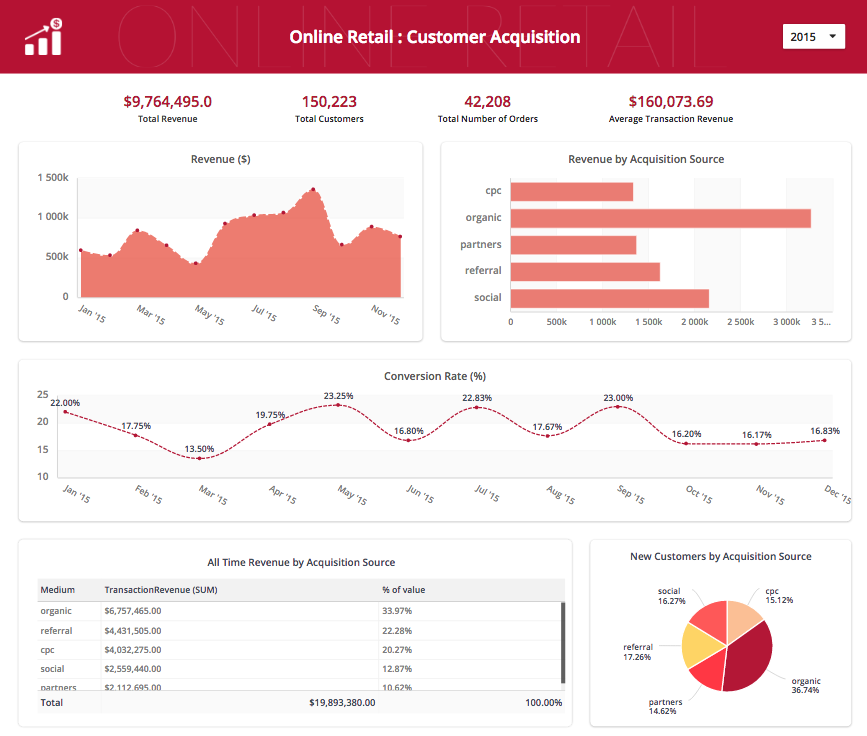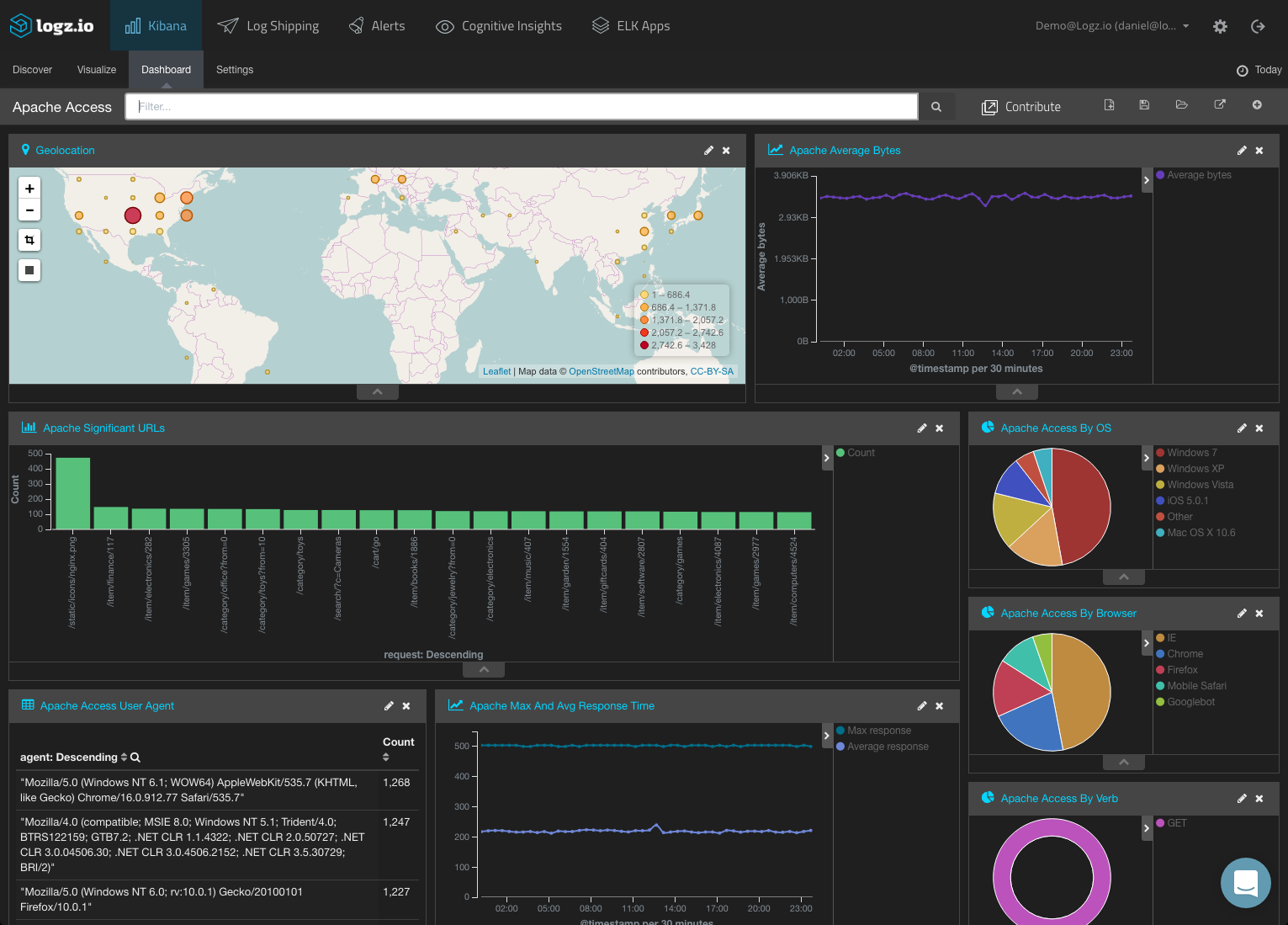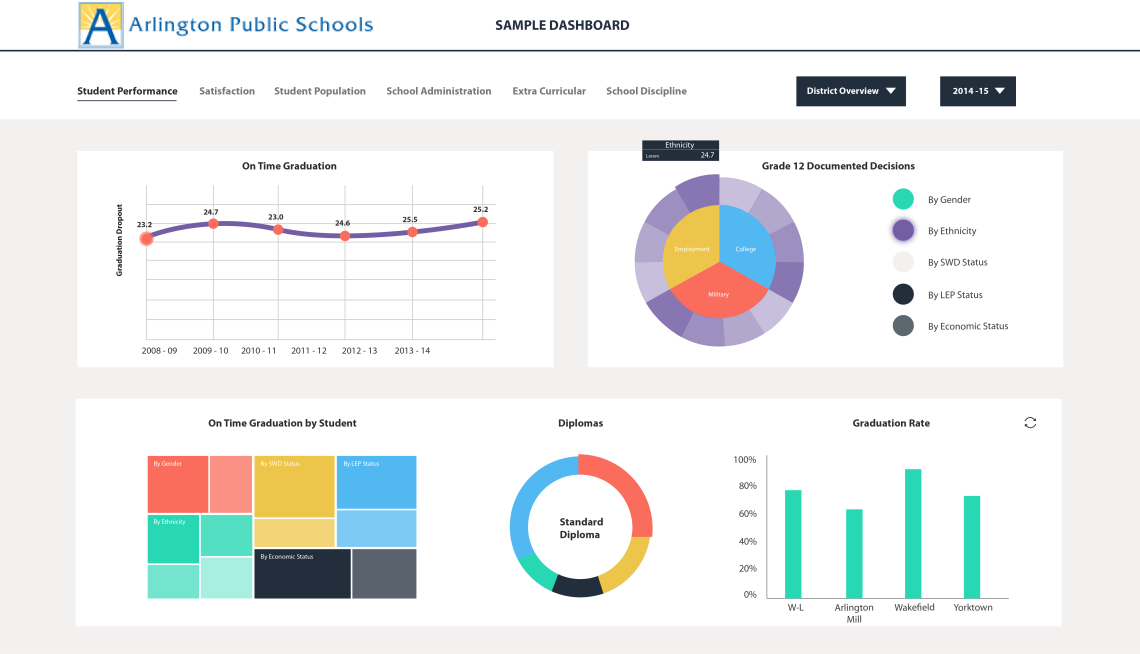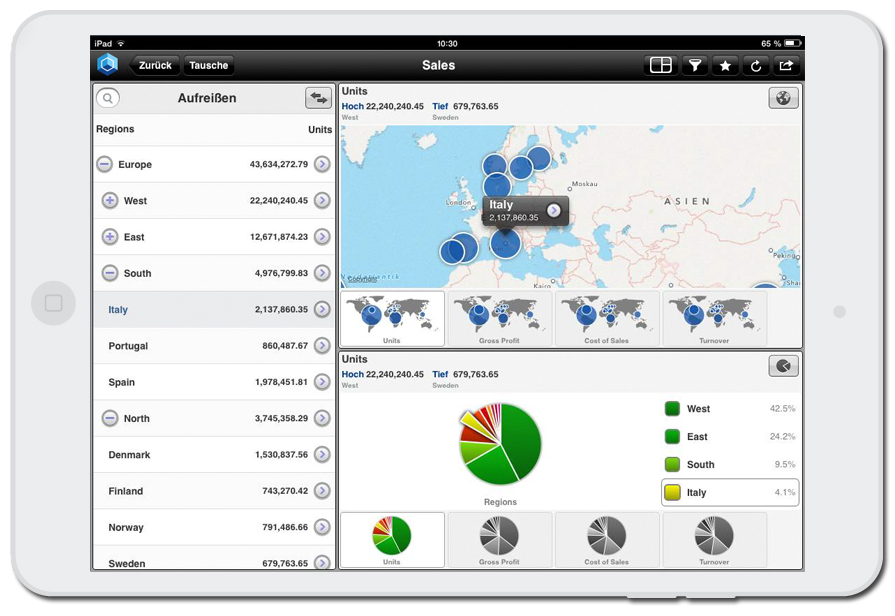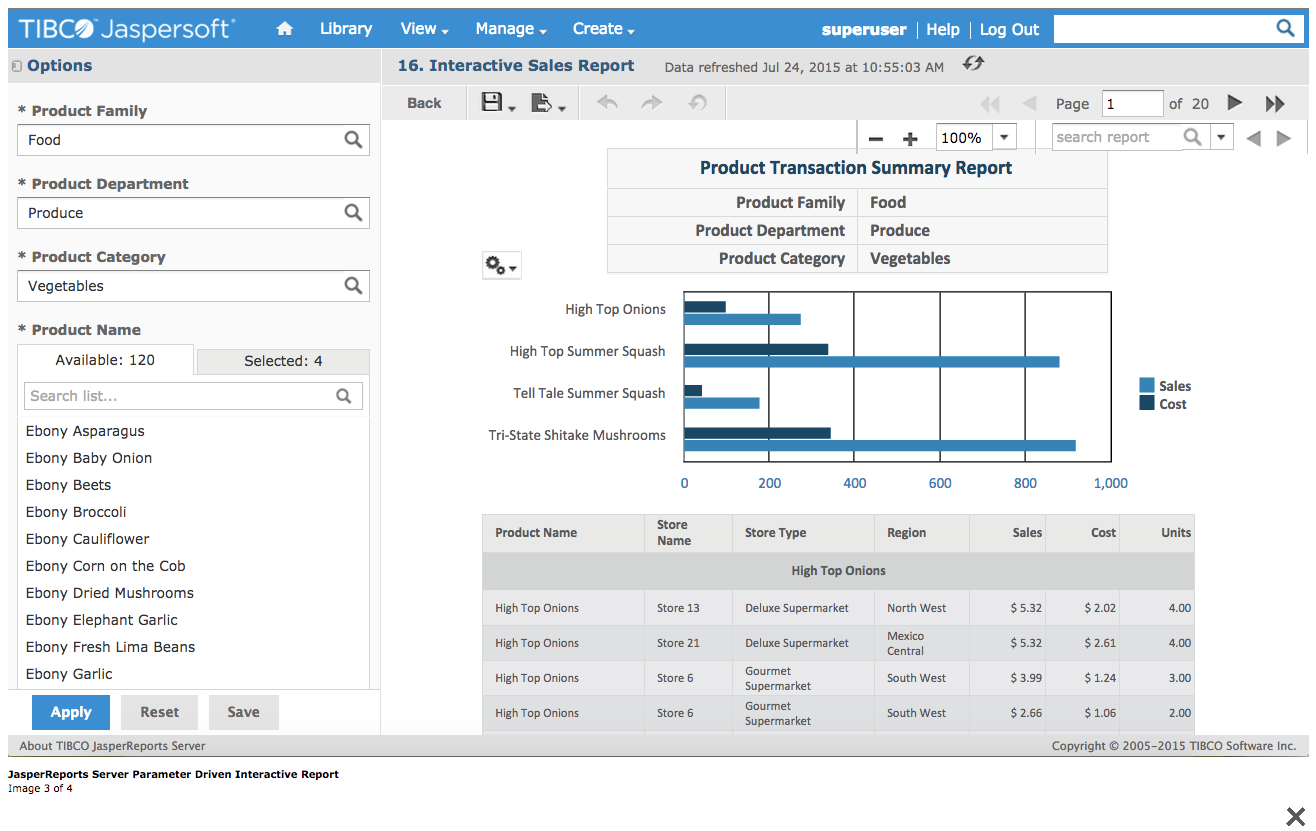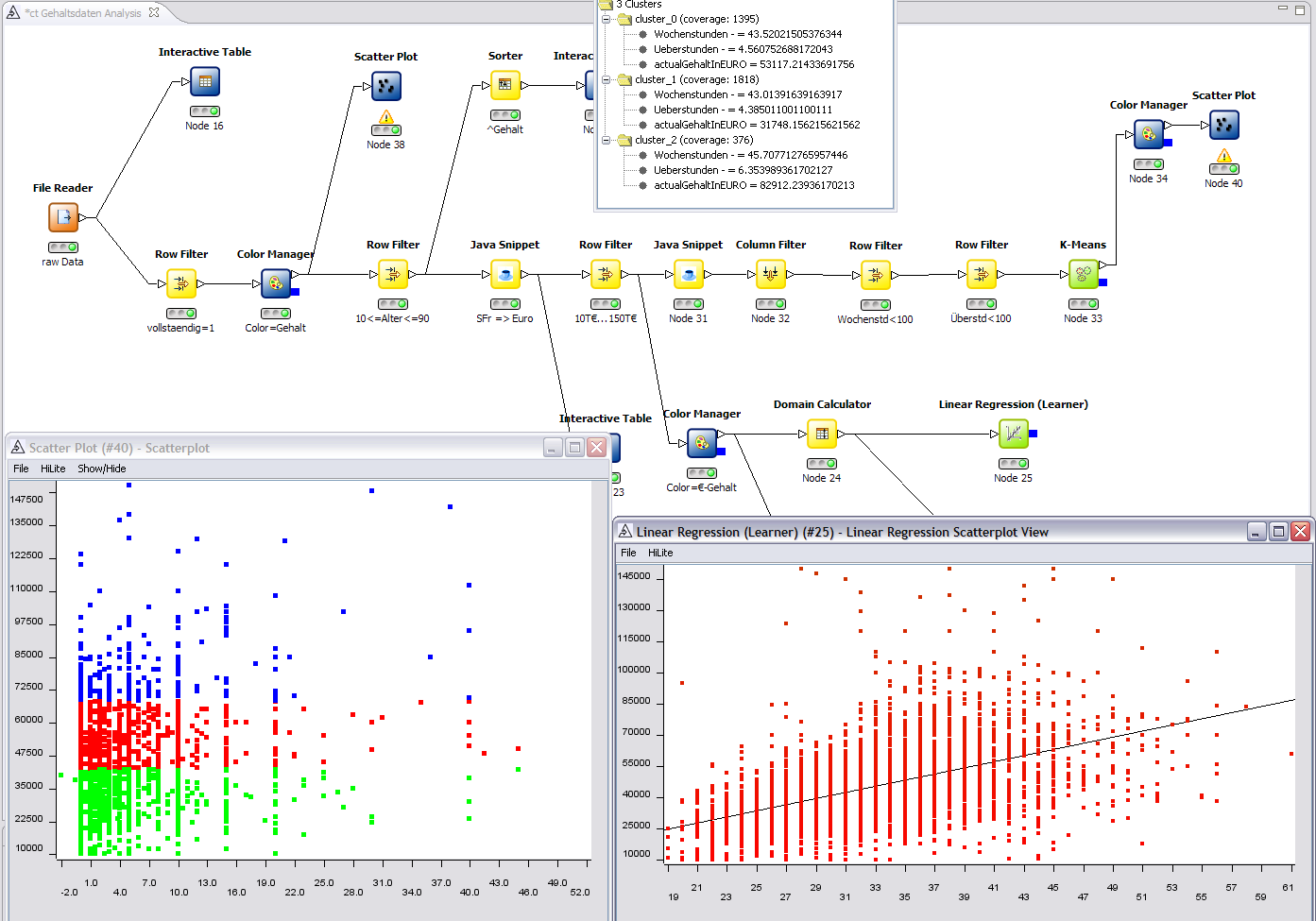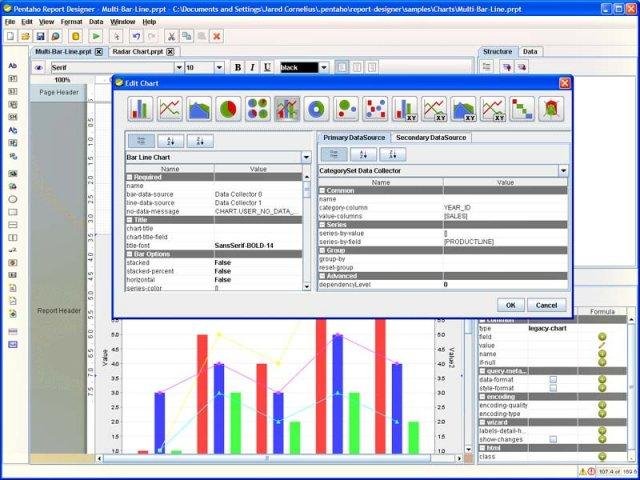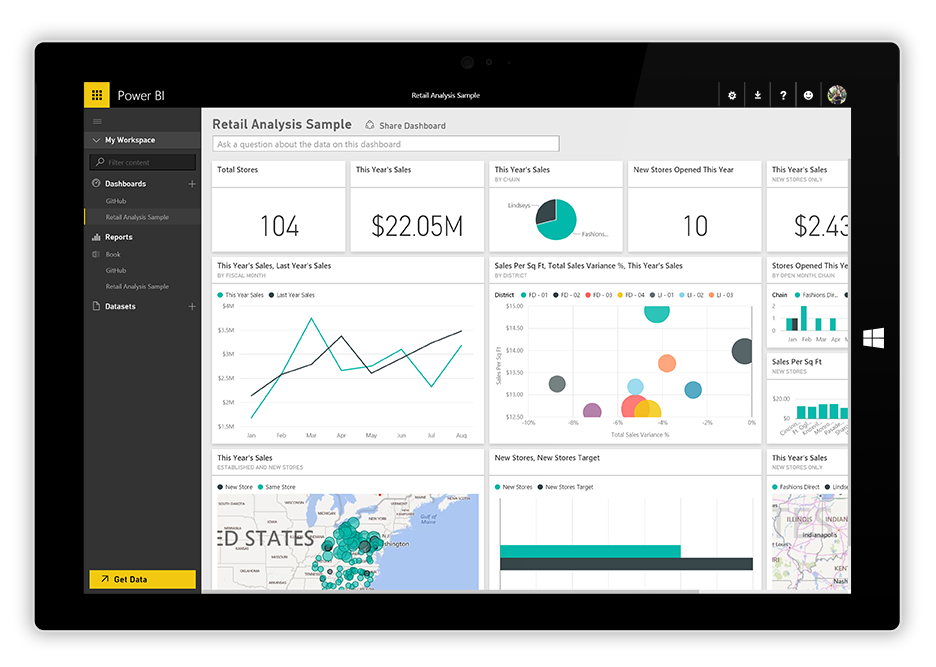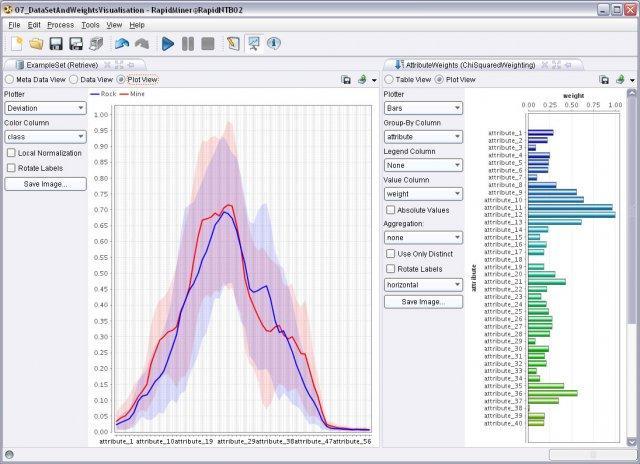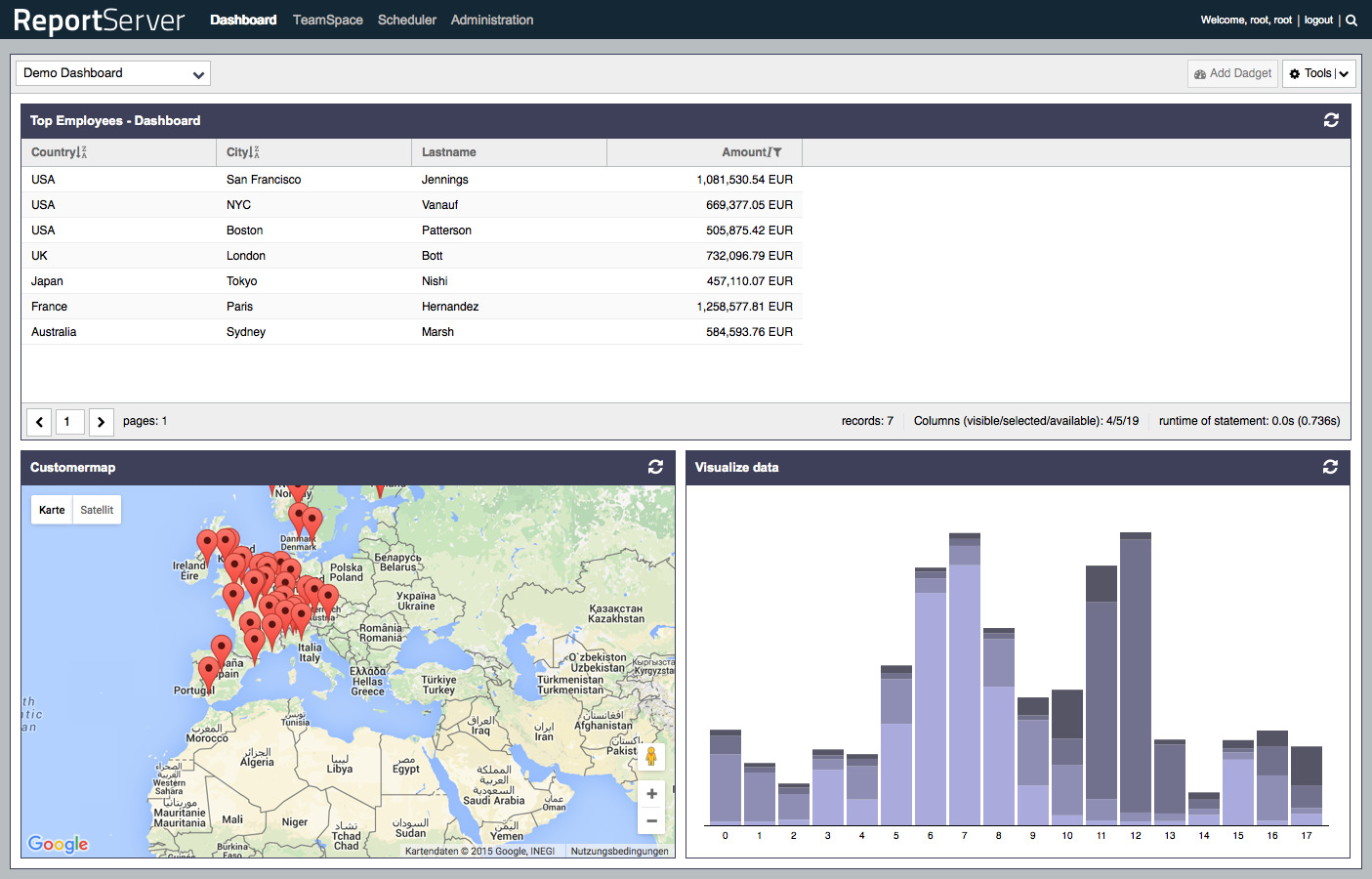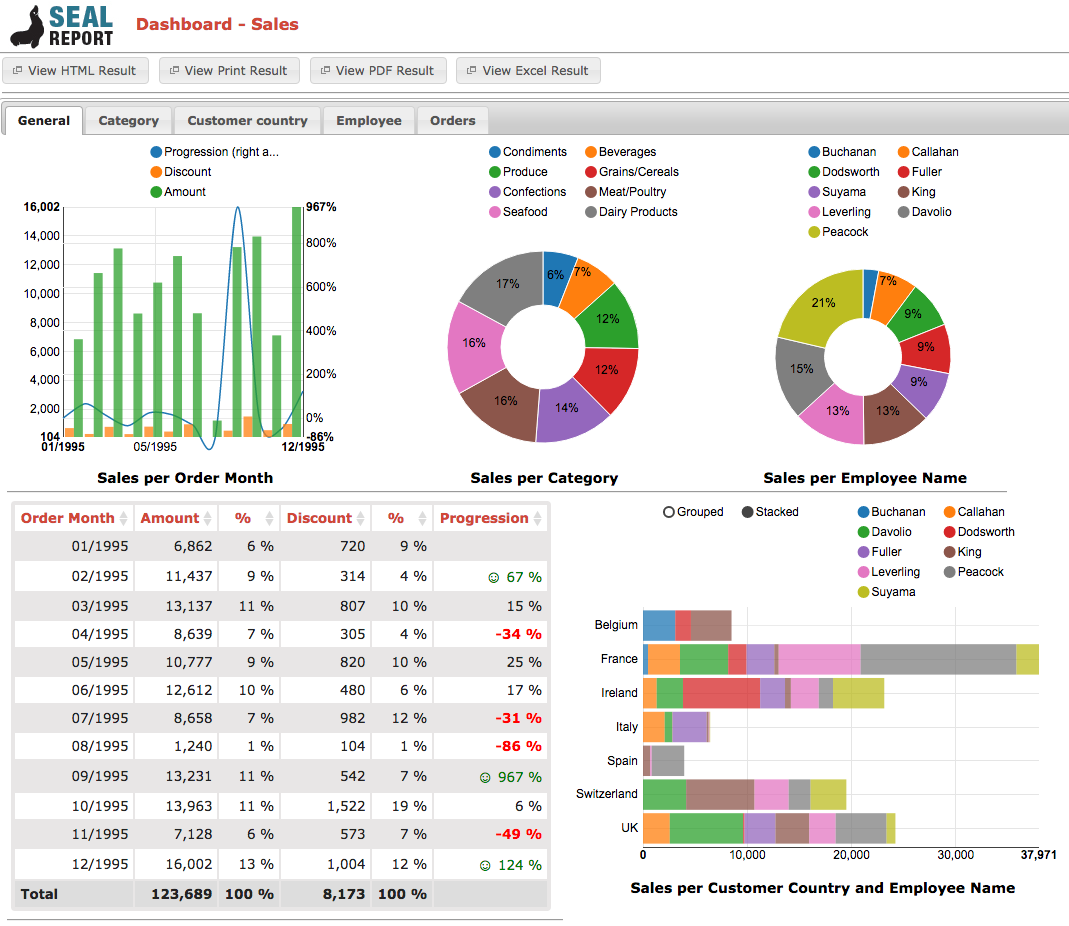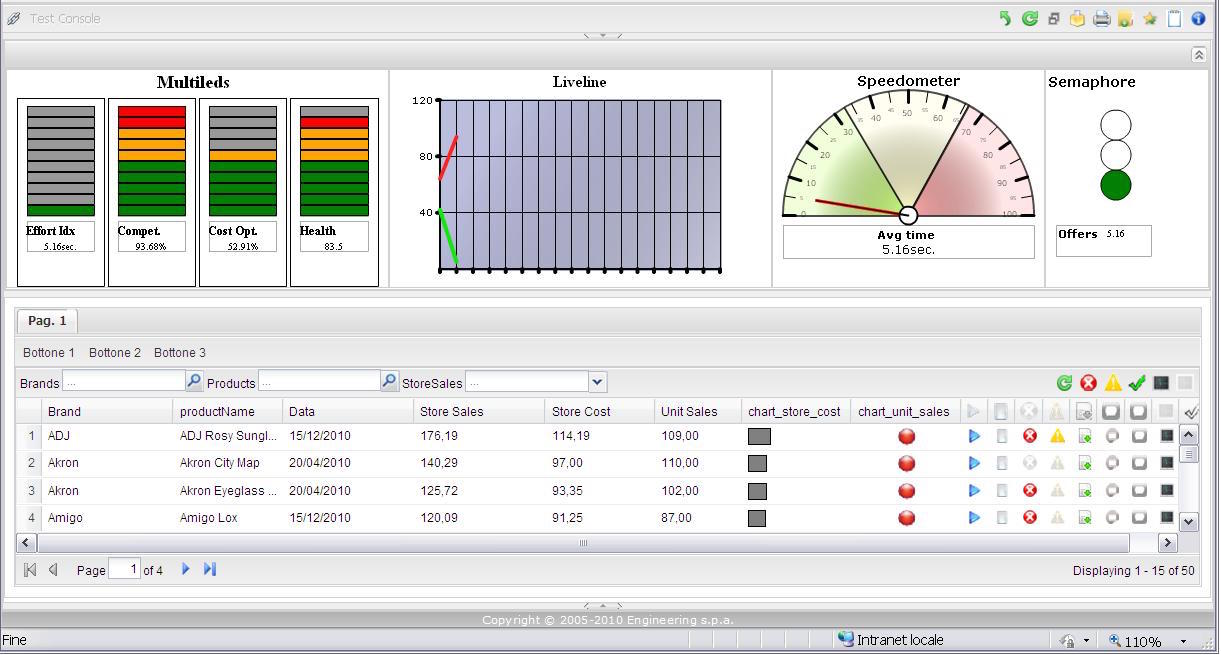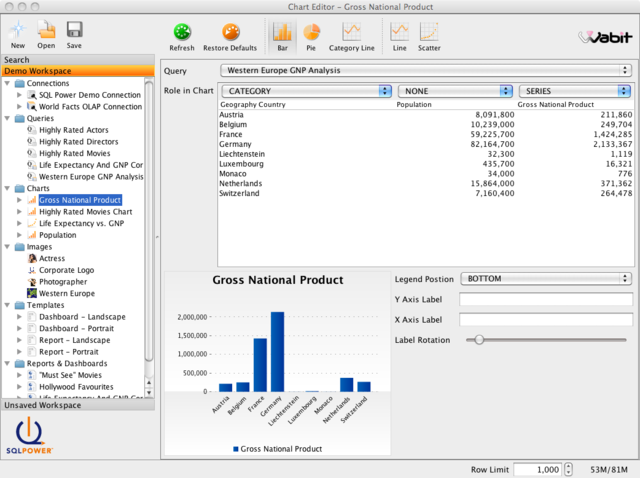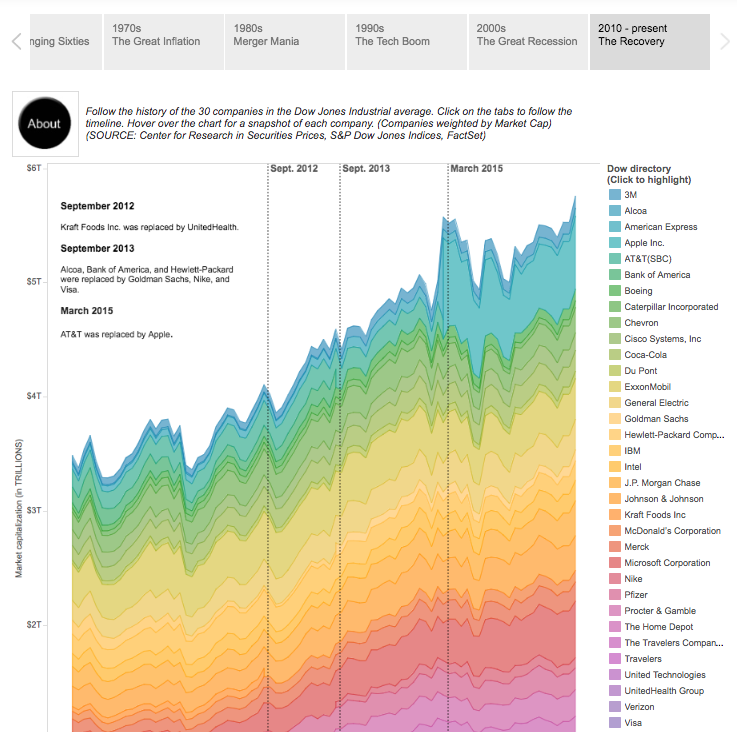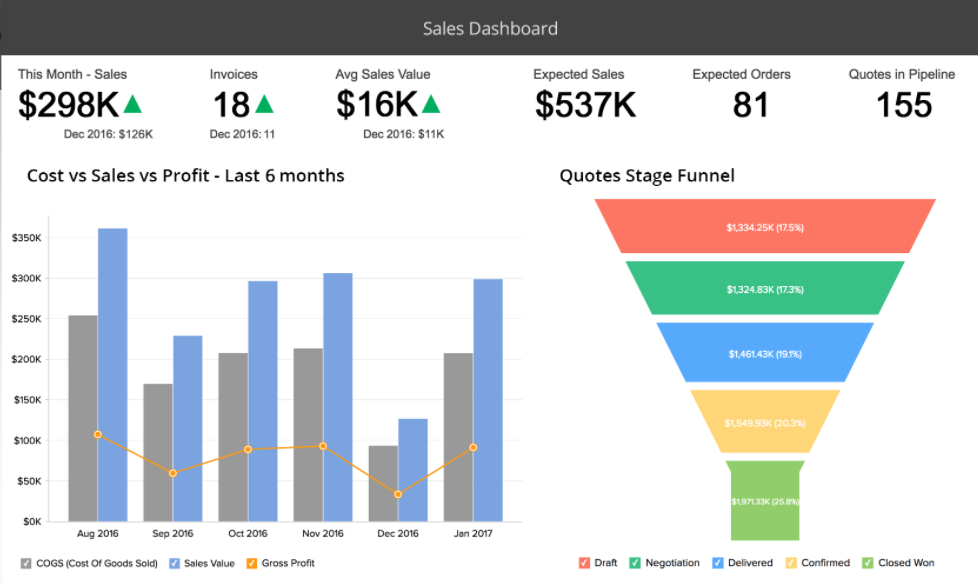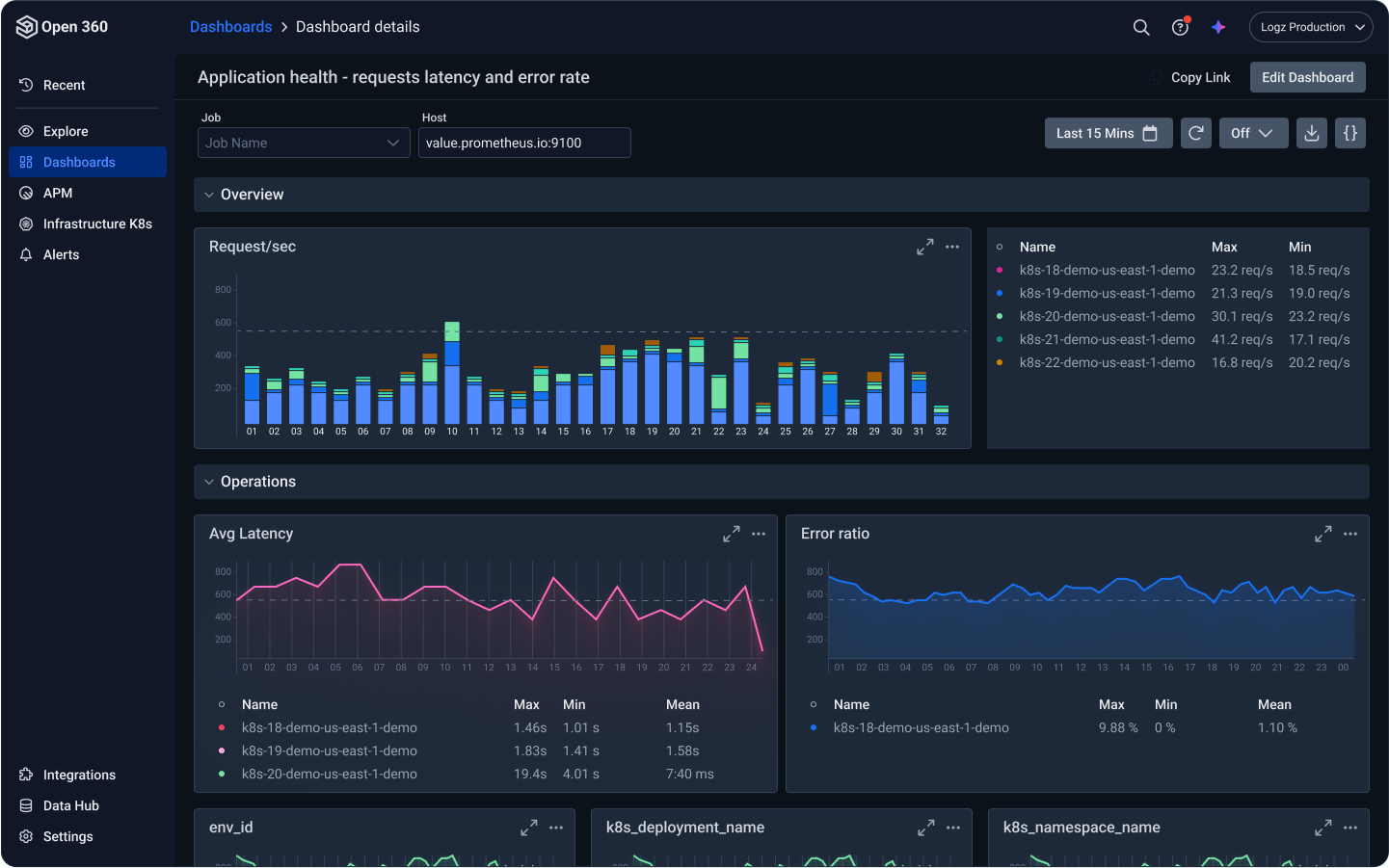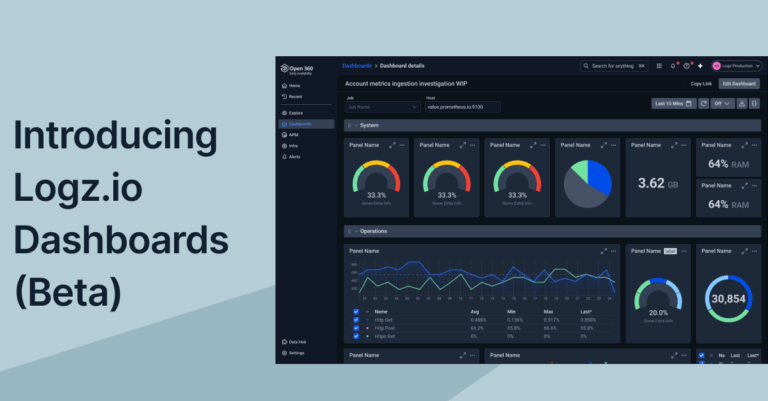
18 Free and Open Source Business Intelligence Tools
March 20, 2017

Real-time analytics is becoming increasingly important as businesses are processing more and more information about their operations and customers. In just one example, Gartner projects that in three years, the average person will interact more with bots each day than their romantic partners.
More on the subject:
But it is not enough to collect all of this information. Companies will need to analyze it — and that is where data science and business intelligence tools come in. Open-source software is overtaking proprietary platforms, so I have compiled a comprehensive list of free and open-source BI tools in alphabetical order.
We’ll also review Logz.io, which provides some of these open source monitoring tools as an enterprise-grade cloud service. Learn how Logz.io unifies and enhances the leading open source observability technologies here.
Have I left anyone out? If so, let me know below in the comments.
1. BIRT
BIRT is open source BI software that can be used to create data visualizations and reports, which can all be embedded into web applications. The main components are a visual report designer, a runtime component for generating designs, and a charting engine. The platform has more than 12 million downloads as well as a community center at the BIRT Developer Center.
2. ClicData
ClicData offers ClicData Personal, a free version of their dashboard software that provides 1 GB of data storage with an unlimited number of dashboards for a single user. The premium version allows for a greater number of data connectors, automated data refreshes, and multi-user with advanced sharing capabilities.
3. The ELK Stack
The open source ELK Stack is commonly used to centralize streams of data then visualize the information in real-time, monitoring dashboards (such as this one for Salesforce dashboards).
More on the subject:
We at Logz.io have created an AI-powered log analysis platform that offers ELK as an enterprise-grade cloud service with machine learning technology.
4. Helical Insight
Helical Insight is an open source BI framework that provides e-mail scheduling, visualization, exporting, multi-tenancy, user role management along with an API-driven framework that allows users to add any additional functionality that they may need. The Instant BI feature lets people type questions in a Google-like interface and receive the relevant reports and charts.
5. Jedox
Jedox provides powerful planning and beautiful reporting on every desktop and mobile device. The platform aims to eliminate the headaches of Excel by providing a rich, interactive experience with real-time modeling. The cloud and premium on-premise versions have 14- and 30-day trials, respectively.
6. JasperReports Server
JasperReports Server provides reporting and analytics that can be embedded into a web or mobile application as well as serve as a repository of information that can be delivered on a real-time or scheduled basis. This open source software can also manage Jaspersoft paid BI reporting and analytics platform.
7. KNIME
KNIME is an open source platform for data analysis that comes with more than 1,000 modules, hundreds of ready-to-run example analyses, a set of tools that is integrated into the software, and a lengthy selection of algorithms that users can chose to incorporate. KNIME is used by data scientists and BI executives.
8. Pentaho
The Pentaho Reporting platform is a suite of the company’s open source reporting tools that lets users create historical data reports in PDF, Excel, HTML, text, rich-text file, XML, and CSV formats. The computer-generated reports can take data from multiple sources and make it easier to understand.
9. Microsoft Power BI
Microsoft Power BI offers a free version of the platform with a 1 GB per user data capacity limit and once-per-day data-refresh schedule. Power BI’s dashboards can present insights from Salesforce, Google Analytics, and other platforms on desktop and mobile devices. Users can also query the software with natural language (in other words, plain English).
10. RapidMiner
RapidMiner allows data scientists to build a complete analytical workflow in data science and business intelligence projects, allowing them to do data preparation, modeling, and deployment in a single environment. The platform is supported by a community of 250,000 data science experts. RapidMiner has a free tier, and premium plans start at $2,500 per year.
11. ReportServer
ReportServer integrates various BI reporting engines into a single user interface with the goal of allowing people to use the right analytics tool for the right purpose at the right time. There is a free community tier as well as an enterprise one, and the software’s Dynamic List feature allows for the ad-hoc generation of list-like reports.
12. Seal Report
Seal Report is an open source framework that can produce reports and dashboards based on the information in a database. Features include native pivot tables, charting in either HTML 5 or Microsoft formats, web report servers, and dynamic SQL sources. Users can also schedule report generations in advance and generate them in folders or send them over e-mail.
13. SpagoBI / Knowage
SpagoBI is an open source business intelligence suite that includes reporting, charting, and data-mining tools. It is developed by the Open Source Competency Center of Engineering Group, a large Italian software and services company that also offers professional services such as user support, maintenance, consultancy, and training.
The team behind SpagoBI now uses the Knowage brand.
14. SQL Power Wabit
In 2008, SQL Power Group open-sourced Wabit, which provides a single framework for all ad-hoc queries and OLAP analyses that works with almost any database platform. Wabit’s drag-and-drop interface can also tap into streaming data to create real-time dashboards. The community edition is free to deploy.
15. Tableau Public
Tableau Public is free BI software that allows people to create interactive charts and live dashboards and then publish them on the Internet, embed them on a website, or share them on social media. Material can also be customized for display on desktop, tablet, or mobile devices. Tableau also connects to Google Sheets, and data can be auto-refreshed once per day.
16. Zoho Reports
Zoho’s BI platform, Zoho Reports, can connect to almost any data source and then create visual reports and dashboards for analysis. The software also has an analytics engine that has the ability to process hundreds of millions of records and return relevant insights within seconds. The free version allows for two users.
17. Metabase

Metabase BI Starting Dashboard
Metabase is an SQL-based interface equipped with a GUI query builder with use cases applying to streaming data (including music streams), security investigations, fraud prevention and onboarding. Many of their users apply it to data warehouses for microservices and even the lifecycle of software development.
18. A Reporting Tool
A Reporting Tool (ART) is a lightweight Java-based system that can be used in any modern browser (but the system must have Java downloaded and running). It purports to quickly deploy SQL query results. It was released in 2013 but started seeing major upgrades in late 2017.
2020 updates include jdbc drivers for MongoDB and JSON files. Other features include drill down reports, alerts, dynamic data sources and dynamic job recipients, as well as several language versions.
Logz.io
Logz.io can’t technically be a part of the list because it isn’t open source. That being said, it unifies popular open source cloud monitoring tools like OpenSearch and OpenSearch Dashboards (the new, open source, and forked versions of Elasticsearch and Kibana), Prometheus, and OpenTelemetry onto a single SaaS platform – providing 1) a single view of log, metric, and trace data analysis, and 2) a zero-maintenance experience, because Logz.io manages all of the data pipeline infrastructure. So, if you’re interested in an enhanced open source monitoring experience, check out Logz.io.
Is there a reason that you prefer one of these over the others? I’d love to hear your thoughts below.

